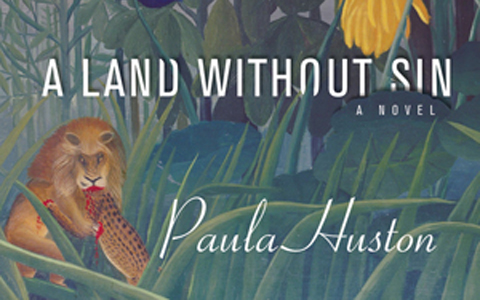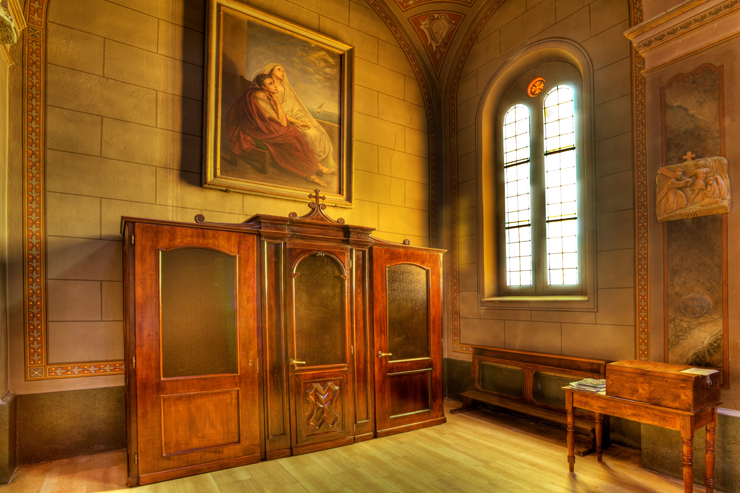
Most Christmas carols are about that first Christmas night or the celebration of Christmas today. But one stands out as something different. In a way, the carol “Good King Wenceslaus” isn’t as much about Christmas as it is about what Christmas requires of us.
“Good King Wenceslaus” always gets stuck in my head on two days: September 28 and December 26. The carol recounts the story of Wenceslaus I, the Duke of Bohemia, walking with his page on the feast of St. Stephen (December 26). Wenceslaus is now a canonized saint who has has own feast (September 28).
The carol tells the story of Wenceslaus and his page walking through the bitter cold snow. Wenceslaus sees a poor man gathering wood to keep his home warm. The king tells his page to give him not only wood, but also food and drink. As the song ends, the page is getting colder and fears he can’t walk with the king much longer. The king tells his page to follow him and walk in the footprints he has already made in the snow. When the page does, he finds there is warmth in the saint’s tracks:
In his master’s steps he trod / Where the snow lay dinted / Heat was in the very sod / Which the Saint had printed / Therefore, Christian men, be sure / Wealth or rank possessing / Ye who now will bless the poor / Shall yourselves find blessing.
Why are we singing a song about a duke walking in the snow on December 26, and why do we consider it a Christmas carol? What can this carol teach us?
Christmas is not a day, but a season. First, unlike most Christmas songs that describe either the preparation leading up to Christmas or the Christmas carols that describe the coming of Christ, this carol speaks of the day after Christmas. It serves as a reminder that Christmas is not a day, but a season.
In our society, it can actually be hard to celebrate Christmas for the season it deserves. People look askance when you still have your decorations up after New Year’s Day, as if you’re the laziest person on earth. Try telling someone “Merry Christmas” anytime after December 25 and they will probably think you need to move on to the next holiday. We need to reclaim the season of Christmas.
It is a carol of holiness. This Christmas carol never mentions Christ, Mary, or Bethlehem. Instead, it is the story of what it looks like to follow Christ. In a way, this is a carol of the universal call to holiness. Despite his rank, Wenceslaus sees himself first as a Christian, and therefore seeks to serve his fellow man. Sainthood is not reserved for the priests and nuns, but is the vocation of even the king of the kingdom.
It is not just the fact that Wenceslaus seeks out the peasant and gives him “flesh” and “wine,” but also that Wenceslaus treats his servant with respect. That is a uniquely Christian act. While our modern culture likes to pretend that societal values such as respect for others is a natural way to live, these values are actually the product of a Catholic culture and the counter-cultural message of Jesus Christ (see Seven Revolutions: How Christianity Changed the World and Can Change it Again by Mike Aquilina and James Papandrea).
We need witnesses and community. Wenceslaus’ page found that following in the footsteps of his master made his journey easier. We also should follow in the steps of the saints, who have finished this race of life before us. They show us that the Christian life is livable, and that the vocation to holiness is possible. Holiness is not easy, nor is the path of the saint an easy one. But when we fear we can go no longer, we look to the saints for intercession and example to help us continue down the narrow path.
Similarly, we also find that surrounding ourselves with Christian friends makes living as Christians easier. The Christian life is meant to be lived in community, and we need a culture where we can live, celebrate, and mourn with people who share our Catholic values. If you don’t have such a community, begin cultivating one. If you desire witnesses, begin by being a witness to others.
Holiness always costs. As the carol evokes St. Stephen, it hints at the fate that awaits Wenceslaus as well. Remember, the Catholic Church doesn’t just remember Wenceslaus in this carol, but also on his own feast day. That day, the priest celebrating Mass wears red, as he does on the feast of Stephen, because Wenceslaus was also a martyr for the Faith he held dear. His brother killed him while he was on his way to Mass.
Wenceslaus followed in the footsteps of St. Stephen, who had followed in the footsteps of Christ. Holiness is not just about caring for the poor, but is also about having the courage to stand up for the Faith when it costs us. We may not be persecuted for the Faith to the point of shedding our blood, but as Augustine reminds us, “Every age is an age of martyrdom. Don’t say that Christians are not suffering persecution; the Apostle’s words are always true… ‘All who desire to live a godly life in Christ Jesus will be persecuted’ (2 Tim 3:12). All, with no one being excluded or exempted. If you want to test the truth of this saying, you have only to begin to lead a pious life and you will see what good reason he had for saying this.” (Sermon 6,2)
The carol “Good King Wenceslaus” reminds us that Christmas is more than just a day of celebration with friends and family. Christmas should change us, because that night changed the world. We have to answer the call that was made that night in Bethlehem and follow in our Master’s steps. While it will cost us if we do, we also will find blessing.














